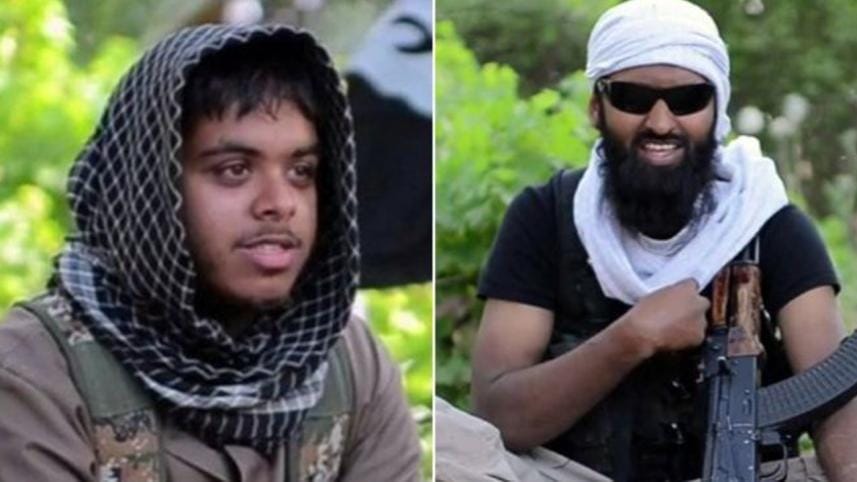Cameron facing IS drone strike questions

David Cameron is facing questions over the decision to carry out a drone strike in Syria which killed two British Islamic State jihadists.
Cardiff-born Reyaad Khan, 21, and Ruhul Amin, from Aberdeen, died last month in Raqqa in the first targeted UK drone attack on a British citizen.
The PM said the "act of self defence" was lawful, despite MPs previously ruling out UK military action in Syria.
Labour is calling for ministers to publish the legal basis for the attack.
In a Commons statement on Monday Cameron said both Khan and Hussain had been involved in actively recruiting IS "sympathisers" and were plotting to attack "high-profile public commemorations" taking place in the UK this summer.
Khan was killed in a precision strike on 21 August by a remotely piloted aircraft, "after meticulous planning", while he was travelling in a vehicle, MPs were told.
Another British national, Junaid Hussain, 21 and from Birmingham, was killed in a separate air strike by US forces in Raqqa on 24 August.
Cameron said the attorney general had been consulted and agreed there was a "clear legal basis" for the strike on Khan.
But questions have been raised over the decision with acting Labour leader Harriet Harman urging the government to publish the legal advice.
She called for "independent scrutiny" of the attack, asking: "Why didn't the attorney general authorise this specific action rather than merely 'confirming there was a legal basis for it'?"
Former attorney general Dominic Grieve said it was possible the decision taken by the government could be "legally reviewed or challenged".
Labour leadership candidate Jeremy Corbyn said "urgent consideration needs to be given to the appropriate process by which attacks such as this one are sanctioned, on what evidence and on what basis of law".
David Davis, former shadow home secretary, said he believed the strike was justified but warned of "the possibility that this translates or becomes routinised into something like the Americans' position".
And human rights group Reprieve described the air strike as "deeply worrying".
'See the truth'
A family friend of Khan's from Cardiff, Mohamed Islam, called for an investigation "to see the truth of this incident".
He said it was "very complicated, very sad and very hard" for Khan's family.
Two years ago MPs rejected possible UK military action in Syria, but last September approved British participation in air strikes against IS targets in Iraq only.
However, officials said the UK would "act immediately [in Syria] and explain to Parliament afterwards" if there was "a critical British national interest at stake".
The strike on Khan was "the first time in modern times that a British asset has been used to conduct a strike in a country where we're not involved in a war", the PM confirmed.
He said the strike had been approved at a meeting of "the most senior members" of the National Security Council, and authorised by Defence Secretary Michael Fallon.
"There was a terrorist directing murder on our streets and no other means to stop him. This government does not for one moment take these decisions lightly," Cameron said.
"But I am not prepared to stand here in the aftermath of a terrorist attack on our streets and have to explain to the House why I did not take the chance to prevent it when I could have done."



 For all latest news, follow The Daily Star's Google News channel.
For all latest news, follow The Daily Star's Google News channel.
Comments